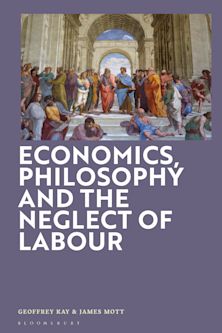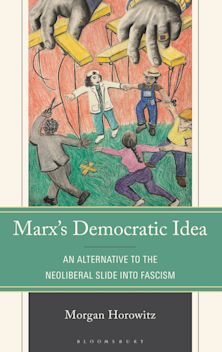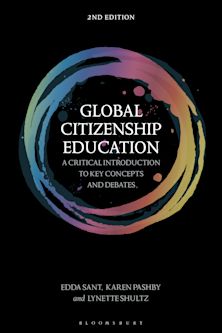- Home
- ACADEMIC
- Philosophy
- Social and Political Philosophy
- Rescuing Dewey
You must sign in to add this item to your wishlist. Please sign in or create an account
Description
This book rescues an often misunderstood, underappreciated, and radical John Dewey. It centers on his rejection of traditional epistemology for his original and powerful view of "logic"-with serious implications for general philosophy, the philosophy of the human sciences, including psychology, and the philosophy of democracy. The goal of this work is not to try to rescue Dewey from his critics, but to rescue Dewey from his friends-from those who ignore the implications of Dewey's naturalism to those influenced by Richard Rorty who take Dewey's rejection of insurrectionary politics too far.
While it is true that Dewey rejected insurrectionary politics and was no "fire-eating leftist," his analysis of the present was radical in the sense that it went straight to the roots. Peter T. Manicas examines how this made Dewey's politics similar to those of Marx in many crucial ways and the positive effort of these essays places Dewey's naturalism at the forefront, resolving some of the tensions and misunderstandings stemming from his body of work. Doing so requires serious reconsideration of some of his most characteristic views on philosophy-especially of logic and epistemology-science, and democracy.
Table of Contents
Chapter 2 Acknowledgments
Chapter 3 Introduction
Part 4 I: Pragmatism and Science
Chapter 5 1. Pragmatic Philosophy of Science and the Charge of Scientism
Chapter 6 2. John Dewey and American Psychology
Chapter 7 3. John Dewey and American Social Science
Chapter 8 4. Culture and Nature
Part 9 II: Not Another Epistemology
Chapter 10 5. Naturalism and Subjectivism
Chapter 11 6. Naturalizing Epistemology: Recent Developments in Psychology and the Sociology of Knowledge
Part 12 III: Democracy
Chapter 13 7. American Democracy: A New Spirit in the World
Chapter 14 8. John Dewey: Anarchism and the Political State
Chapter 15 9. Philosophy and Politics: A Historical Approach to Marx and Dewey
Chapter 16 10. John Dewey and Problem of Justice
Chapter 17 11. Liberalism's Discontent: America in Search for the Past that Never Was
Part 18 IV: Why Not Dewey?
Chapter 19 12. The Evasion of Philosophy
Chapter 20 13. Democratic Hope
Chapter 21 14. Analytic Pragmatism
Chapter 22 15. Post-Modern Pragmatism
Chapter 23 References
Chapter 24 Index
Product details
| Published | 01 Jan 1955 |
|---|---|
| Format | Ebook (Epub & Mobi) |
| Edition | 1st |
| Extent | 352 |
| ISBN | 9780739130209 |
| Imprint | Lexington Books |
| Series | Studies in Ethics and Economics |
| Publisher | Bloomsbury Publishing |
About the contributors
Reviews
-
This study is stunningly good in more ways than it is possible to summarize briefly: above all, an author, whose erudition is as wide-ranging as his acumen is deep-cutting, has written a timely work in which historical contextualization and philosophical probity are perfectly balanced. John Dewey is rescued by Peter T. Manicas from narrow and reductive readings; thereby he is made available as a truly contemporary contributor to intellectual debates of broad human significance and debates concerning democratic practices and political deliberation, as much as science and inquiry. Dewey's pragmatic naturalism has no more informed, insightful, and indeed eloquent champion than Peter Manicas; and here Manicas is unquestionably at the top of his game.
Vincent Colapietro, Pennsylvania State University
-
This collection of essays is an important contribution to this debate and will undoubtedly inspire further discussion about the proper placement of Dewey in the history of political thought.
The Review of Politics
-
Peter T. Manicas offers his readers a wide-ranging and highly original tour of Dewey's work, set against the backdrop of more than a century of developments in epistemology, political philosophy, and sociology. Confidently evoking a huge cast of characters, and taking on Dewey's friends as well as his foes, he provides fresh insights into the complexities of Dewey's thought and its continuing relevance for democratic life.
Larry A. Hickman, The Center for Dewey Studies, Southern Illinois University Carbondale



































